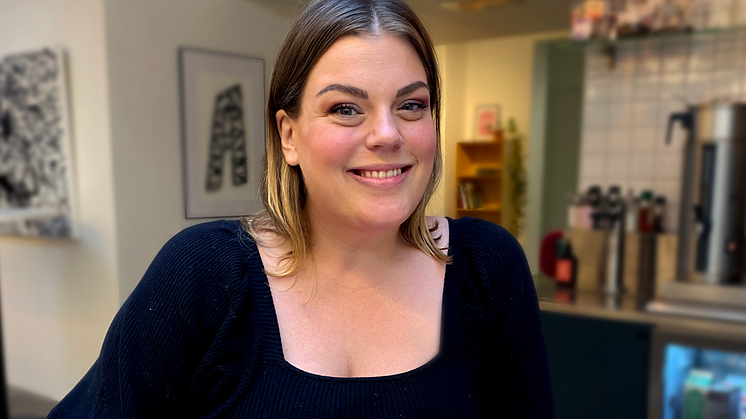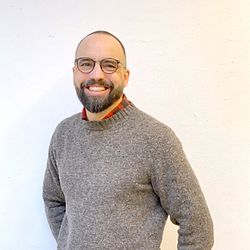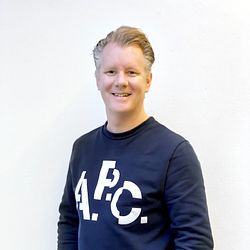
Blogginlägg -
Alster Agile with Matilda Rask Banzola
Matilda Rask is one of our most valued Team and Process Leads here at Alster. She has been one of the driving forces behind how we work, and how well it has been supported and developed through the years. It was she who initiated our internal initiative to work more with our process. She has helped to optimize our offering and experience, to the satisfaction of many employees and clients alike. Her team loves her and she seems to understand the magic balance between managing the process, leadership, and being a true member of her team. We have grabbed a few minutes of her time to share some more insights for our Alster Agile interview series. She shares a little more about how we work with our customers, the need for flexibility and transparency, and the importance of both good hard and soft skills.
Name: Matilda Rask
Job titles: Team and Process Lead
Education: Medieinstitutet & Södertörn University
Time at Alster: 6 years
What do you think is best about Agile and how we apply it here at Alster?
“You get to be one team with the customer. You come together throughout the process to build the right thing and build it the right way. The risk when you work with other methodologies is that you would spend too much time talking and thinking about it at the beginning of a project. When you finally get to the later development stages, many things come up and the customer’s expectations can get easily misaligned. The risk of ending up in the wrong place is huge that way.
Within the Agile framework at Alster, we make sure to focus on clear communication, that everyone gets what they need to deliver, and trusting our skilled talent to each do their part. Those key factors working together, in close partnership with a customer who’s engaged, sets each of our projects up for greater success. Working this way also really opens the product up to much greater opportunities. The possibilities are enormous! The customer can end up with something completely different than what they had originally envisioned.”
So, would you say that clients generally don’t even really know what the greater possibilities are until they are actually in our process and working alongside us?
“They don’t! When a customer comes to understand the value of Agile and has a higher level of involvement in working together with our specialists, it kind of becomes a journey that we all take together. It might be a bit scary for a customer to come to us with a certain sized budget and not know exactly what they are going to get in return right off the bat, but they really will get what they need and so much more. This way of working allows for much greater outcomes.
In my experience, working with teams this way increases the feeling of ownership from developers and designers—when they don’t just work from specifications. If they know that they are allowed to come up with ideas, the relationship with the client feels more like a unified team working towards a common goal. Getting real relationships and trust in place within the process is the most important thing, not exactly how you do things within the Agile framework.”
So relationships within an Agile environment are of the utmost importance, but what about working with the process itself then?
"Years ago, when I was out of school, I did Agile straight out of the book. I think that was good back then because I needed to understand and explore it to learn. I now feel that I can be a little more relaxed about everything from working with it through the years, as long as the team (including the customer) regularly makes time to reflect and see how we can do better. I feel we are still working Agile even if we don’t have a by-the-book two-hour meeting every other week that’s called a “retro.” As long as we adopt the general principles it doesn’t need to be so rigid.
How well do you feel that we adopt the Agile principles here at Alster?
It’s difficult to speak for all teams about how well each specific Agile principle is exactly and tactically being applied, since every project is unique. However, we do have a competence forum to be able to support all of our teams in developing and optimizing their performance and process regularly. I guess you could say that we are even Agile with our Agile process.
It’s good to have a unified basic understanding of the process across the organization, to make it easy for people to jump in between projects and have some familiarity. It’s also important that we keep our process flexible enough to accommodate each different project and client’s needs on a case-by-case basis. There isn’t a one-size-fit’s-all process approach that we can just adopt. There are many variables to accommodate like the size of the project, how familiar the client is with how we work, the product owners’ experience level, etc.
How does all of this operational and process work help our end product?
It helps all the teams feel great ownership and motivation. If you get a dedicated and motivated team, the result will be good, because you have people that want to be in the project and give the extra mile. This way of working helps everyone feel a higher level of commitment. You can see how all of Agile’s benefits directly translate into the success of each product. In working this way there’s a huge reduced risk of doing the wrong things. You also get quick feedback and the ability to change course or prioritization—as the level of knowledge increases and the environment changes.
Agile is often found in product design, but what makes Alster’s Agile unique?
One thing that stands out is that we fully adopt this way of working and don’t just go through the motions. It’s a value system and a powerful way of functioning. Often people just perform the rituals to be able to say that they have it and don’t fully understand or realize it in the way it should be. We were also very early in adopting this way of working compared to other places, so we’ve had a long history of growth and development that other companies might not have. Also, due to our strong culture and family here, we have the luxury of developers who have stayed with us and been working this way for over ten-plus years. You notice differences between seasoned talent like that those who aren’t that familiar. Our younger talent has a great mentorship opportunity in understanding, learning, and adapting to our practice. Here it’s kind of second nature, we live and breathe it.
Can you remember the biggest learnings we have corrected through the years?
Setting good expectations for the customer is one of the things I think we have focused on and developed through the years. Spending a lot more time, in the beginning, to understand and educate them on our ways of working has been something we place a lot more value and time on. It’s super important to validate and bridge knowledge and expectations right from the start.
What is the great danger when expectations are misaligned from the beginning?
The customer often is left with a lack of transparency and understanding. They aren’t ever truly integrated and involved in the project. They won’t see exactly where their money is going and that can cause major problems. At the beginning of the project, you mustn’t be afraid to discuss these things up front. If we aren’t super transparent and the customer doesn’t show up, own their project, and participate in the meetings, rituals, planning, dailys, retros, and demos, to see firsthand what's happening, the outcome will be bad. If you ensure they are present and participatory throughout the process, they will always be involved at every step. It’s important to be unified as one team and not an us versus them scenario. We need to be in it together from day one and feel ownership for the product on both sides and prioritize together.
Do you have any advice or key thoughts you can share about your way of leading Agile teams at Alster and how you best do your job?
“My role here is two-sided. When it comes to the process, it’s a lot of structure and making sure I can juggle a lot of things, get things done, and optimize time. On the other hand, the team side is where I get to be softer. I make sure that everyone has personal and professional support as much as possible. We care about each other at Alster and it’s super important to keep that warmth and provide a safe space here.
I don’t ever consider myself someone’s boss. I see myself as an equal to everyone on the team who just tries to facilitate the group and be a bridge to the leadership group. Someone in my team once described me as ‘both hard and soft’ and I feel that fits. I don’t have a hard time sharing things about myself and being very personal, even with the customers. I gravitate towards building relationships and think it’s a strong suit of mine. I make sure to show our clients both the soft side of myself and the structure and efficiency. It’s not me to just be all business all the time, and I think it’s important to bring myself into my leadership role."


